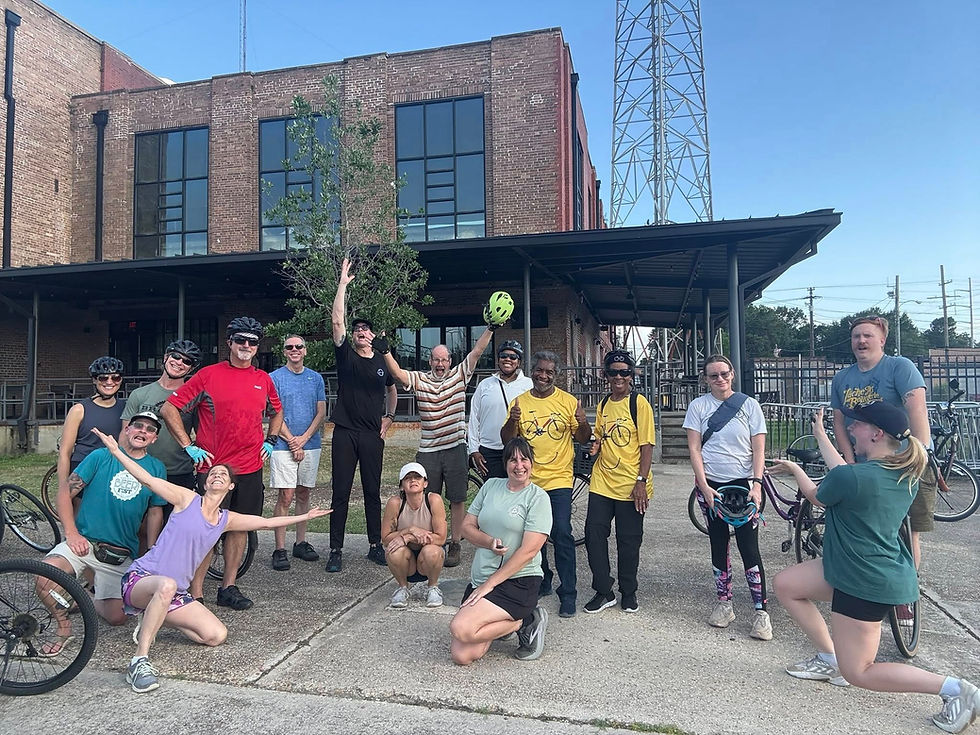Philip Hickey
- downtowneastsocial
- Nov 4, 2024
- 3 min read
Born on June 17, 1778, in what was then called Manchac (now East Baton Rouge Parish), Philip Hickey’s life was deeply entwined with the history of Louisiana. His father, Daniel Hickey, a prominent figure himself, and mother, Martha Sriven, instilled values of resilience and leadership, traits that Philip would carry throughout his life. Hickey's journey from a plantation owner to a state senator and military colonel reflects not only his influence but also the transformative period in Louisiana’s early development.

From Plantation Owner to Sugar Pioneer
Philip Hickey’s life as a planter was distinguished not only by the size of his holdings but by his contributions to agricultural innovation in East Baton Rouge. At a time when agriculture was the backbone of Louisiana’s economy, Hickey managed multiple plantations, a testament to his business acumen. In 1814, he established East Baton Rouge Parish's first sugar mill, marking a significant advancement in the local sugar industry. His contribution set the stage for a burgeoning industry that would sustain the region’s economy for decades.
Involvement in Slavery and Kidnapping Scandal
Philip Hickey, like many prominent plantation owners of his time, relied on enslaved labor to sustain his vast holdings. His participation in slavery extended beyond ownership into a darker episode in 1827, when Philadelphia’s mayor, Joseph Watson, contacted him about several Black children kidnapped from Philadelphia and sold into slavery in Louisiana.
These children—including James Dailley and Ephraim Lawrence—had been seized by kidnapping rings targeting free Black families in the North, exploiting the 1793 Fugitive Slave Act, which allowed virtually anyone to be claimed as a fugitive slave. Watson’s letters identified Hickey as one of the planters in possession of these children, acquired through transactions with known kidnappers. Though Hickey initially resisted cooperating, he eventually returned Lawrence, who tragically died soon after his release, but refused to release Dailley.
This episode highlights the complex and troubling legacy of Hickey’s era. While he contributed to Louisiana’s development, his entanglement in the slave trade and involvement in the forced servitude of free Black children reveal the darker realities behind the South’s economic growth.
Military Service and Political Impact
Hickey’s influence extended beyond his plantations. He held the position of Captain of Cavalry in the Spanish militia, and his involvement in the West Florida Rebellion of 1810 showed his commitment to securing the region’s future. Later, he would become a colonel in the Eleventh Regiment of the Louisiana Militia during the War of 1812, a role that cemented his legacy as a military leader. Hickey’s service illustrated his dedication to defending and shaping his community at a time of regional instability.
In addition to his military contributions, Hickey served as a Louisiana state senator, where he represented the interests of his constituents and advocated for policies that would benefit the growing community. His political influence complemented his military and economic roles, marking him as a well-rounded leader dedicated to his state's development.
Family Life and Connections
On April 24, 1800, Philip Hickey married Ann Mather, daughter of James Mather. Together, they had several children, forming alliances through marriages that strengthened their family’s social and economic ties. These connections were typical of prominent families in the era, often serving as a means of consolidating influence and securing the family's legacy across generations.
Education and Community Involvement
Hickey’s impact wasn’t limited to politics and the economy. He was a trustee at the College of Baton Rouge, an institution that would play an essential role in the education and development of future generations. His commitment to local education reflects his vision for a more prosperous and educated community, positioning him as an early supporter of academic growth in Louisiana.
A Resting Place with a Missing Headstone
Hickey passed away on October 1, 1859, at Hope Plantation in East Baton Rouge Parish. Although he was initially interred in the Catholic Cemetery’s original location, his remains were later moved to a new cemetery on Main Street. Today, no known headstone marks his final resting place, a curious omission for a man of his stature. This missing tribute leaves his legacy open to interpretation, perhaps symbolizing his humble approach to service or simply a historical oversight.
Sources:



Comments